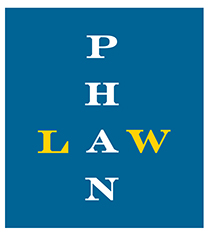Texas Dentists and Advertising
Understanding advertising rules and requirements of the Texas State Board of Dental Examiners (TSBDE) and their approach to policing
Patients are the lifeblood of any dental office and with the increasing number of licensees that the TSBDE licenses each year, the competition for patients and clientele is increasingly getting more and more fierce. Gone are the days of mainly word-of-mouth referrals when one’s ability and skill were the sole means by which new clientele would come through the front doors of the practice.
In today’s dental practice, effective marketing and advertising are usually the norm rather than the exception. With the advent of the internet in recent years, the tools and ability to target new patients and grow new businesses have increased substantially with an explosion of advertising in this arena. For the practitioner, keeping abreast with a growing marketplace remains a key component in the ability to market one’s skills or one’s practice, ensuring continued clientele. Therefore, a dentist would be wise to understand the rules involving advertising in order to avoid a complaint and unnecessary face time before the TSBDE.
The Rules
Generally, the rules dealing with advertising fall under Chapter 108 of the TSBDE’s rules dealing with Professional Conduct, mainly Rules 108.50-108.61. Subchapter E under Chapter 108 deals specifically with Business Promotion and provides the general guidelines for efforts by dentists to obtain business, including advertising, professional announcements, and referral services.
Pursuant to Rule 108.50(b), dentists “. . . have the duty to communicate truthfully and without deception to the public and should not misrepresent their training and competence in any way that would be false or misleading in any material respect.” Regarding advertising, and under Rule 108.51, the term “advertisement” is defined to include advertising in “any medium, including written or printed forms, signs, or advertising using radio, television, computers, or other forms of electronic transmittals.” In our experience and while in-house at the TSBDE, where dentists often run afoul of the advertising provisions and open themselves to a complaint filed against them with the TSBDE is that their form of advertisement is false or misleading. Rule 108.52 provides examples of communications that may be false or misleading, including:
- material misrepresentation of fact;
- omission of a fact necessary to make the statement considered as a whole not materially misleading;
- creation of an unjustified expectation about results the dentist can achieve;
- contains a representation or implication that the announced services are superior in quality to those of other dentists, which is not subject to reasonable verification by the public or;
- a guarantee that a dental patient will be satisfied with the services and/or products received.
So, if your advertisement states that you are the “best” dentist or that you can achieve a certain result, you may violate the TSBDE’s rules regarding advertising. Of course, it would be impossible to provide a laundry list of all advertisements that may run afoul of the advertising rules, so our suggestion would be to familiarize yourself with the rules and consult competent legal advice if you are still unsure or unclear.
Although most dentists are generally familiar with these requirements, there are some specific facts and situations presented to the dentist in everyday practice that may give rise to a complaint and investigation by the TSBDE for violations under the Board’s advertising rules if careful attention is not paid. We examine a few examples here. By way of background, when I served as the General Counsel for the TSBDE, this was an area that saw very little enforcement action relative to the other types of action being pursued by the TSBDE. In recent years, however, the TSBDE has taken a more aggressive approach to advertising issues and ramped up cases for prosecution in this area.
Based on the cases that we have examined and those that continue to come into the firm, there still appears to be no consistency in how the TSBDE interprets these rules and how it attempts to make cases for violations. Admittedly, under testimony in a recent case at the State Office of Administrative Hearings (“SOAH”), the Board’s in-house consulting dentist and one-time Board member, Dr. James Kennedy, D.D.S. (an oral surgeon), candidly admitted under oath that “the majority of advertisements that he has reviewed, including some advertisements by Board members, do not comply with the Board’s rules.” In his personal opinion, he noted that “advertising rules should not be enforced if the Board members themselves cannot abide by them.” Despite this frank admission, the TSBDE continues to press forward.
Failure to Include the Name of a Dentist
In our first example, a common situation arises in which a dentist practices or is partnered with other dentists and/or under a trade name with different degrees of ownership in the practice vested among each dentist. In this context, the issue that often arises is whether a dentist is subject to violations for advertisements placed by another dentist if that advertisement fails to include the name of at least one dentist practicing under that name.
Although a violation may lie for failure to include the name of at least one dentist, a more important concern and one based upon the underlying relationship between the subject dentist and other dentists in his/her practice is whether the subject dentist knew of the advertisement, placed the advertisement, make business decisions, and/or the dentist’s overall relationship to the other dentists. In other words, was the subject dentist responsible for the advertisement? Disproving these factors could mean success at disproving that a violation occurred.
Because each case is fact-driven, these factors will need to be reviewed on a case-by-case basis to determine whether or not a violation exists for advertisements placed by those you partner with and/or have relationships within your practice.
Advertisement of a Limited Practice or Specialization
Generally, advertisements for dental services may not be false, misleading, or deceptive or not readily subject to verification. Under this rubric, advertisements that cause confusion or misunderstanding as to a dentist’s credentials or education are violations. Thus, advertisements, for example, providing that one is “devoted exclusively to cosmetic and restorative dentistry,” may imply that the dentist is a specialist in an area recognized by the American Dental Association. See 22 TEX. ADMIN. CODE § 108.56. Other similar advertisements, for example, include:
- a practice with a ‘focus on cosmetic dentistry and occlusion’;
- a dentist who ‘has been providing quality care in Cosmetic and Implant dentistry since . . ..’;
- ‘specializing in cosmetic dentistry’; and
- ‘Special Expertise: Cosmetic Dentistry and Long Term Preventative Care.” The TSBE is likely to contend that cosmetic and restorative dentistry are not recognized specialties. These types of advertisements of limited practice in these areas violate the Board’s rules.
Again, in order to fight against any contention that these statements are false, misleading, deceptive, or not readily subject to verification and imply a specialization, specific facts about that dentist/practice will need to be explored and developed to refute such a contention. If one is able to demonstrate that these statements are truthful, one stands a great chance to refute such a charge.
The Phan Law Firm, P.C. invites you to continue to familiarize yourself with these rules and to contact the firm with specific questions related to your advertising questions in your practice.










